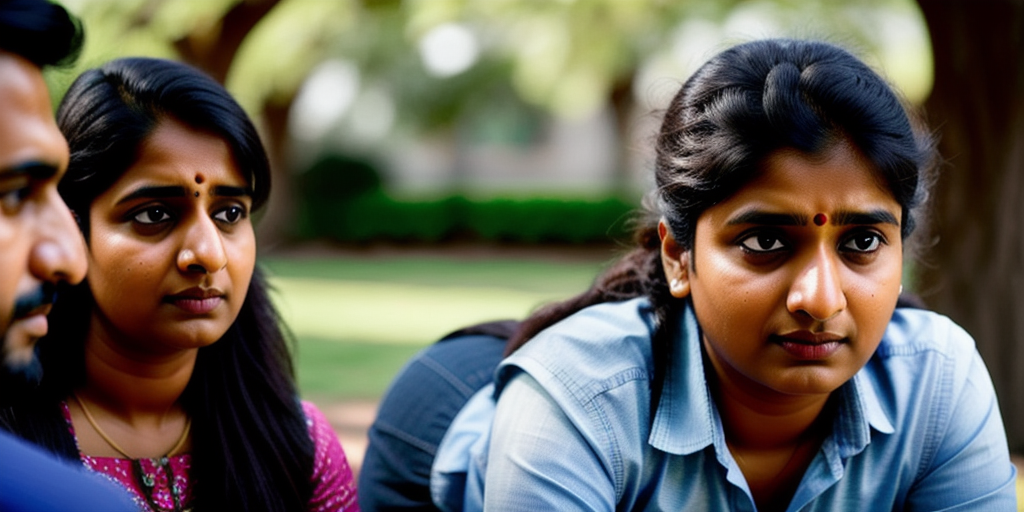
Radhika Yadav’s Murder: Psychology Of Pride, Patriarchy, And Prejudice
How did your country report this? Share your view in the comments.
Diverging Reports Breakdown
Radhika Yadav’s Murder: Psychology Of Pride, Patriarchy, And Prejudice
Tennis ace Radhika Yadav, 25, was found dead in her home in Gurgaon, India. Her father, Deepak, has been charged with her murder. Psychiatrists are weighing in on what might’ve pushed Deepak over the edge-bottled-up rage, patriarchy squeezing the life out of everyone, and the pressure to keep up appearances. Dr Pavitra Shankar: “Perceived disrespect or ongoing stress are trigger points” Dr Pooja Verma: “In India, mental health is stigmatised, especially for men, where seeking help is seen as weakness” For confidential support on suicide matters call the Samaritans in the UK on 08457 90 90 90, visit a local Samaritans branch or see www.samaritans.org for details. In the U.S. call the National Suicide Prevention Line on 1-800-273-8255 or visit www.suicidepreventionlifeline.org. For confidential help in the United States, call theNational Suicide Prevention Lifeline on 1
Cops have Deepak in custody now. He’s admitted to everything, right down to the detail-sent his son out to buy milk so he’d have a clear shot. Why? Villagers kept sneering at him, calling him “shameless” for funding Radhika’s career. He was even thinking about ending his own life, but instead, he turned all that anger on the one person who defied him-Radhika, who flat-out refused to close her tennis academy.
A police investigation is underway. Radhika’s phone has been recovered. Police say right before everything went down, Radhika deleted all her social media. Was she hiding? Escaping? Her WhatsApp chats with her old coach, Ankit, are a cry for help-she felt stuck, wanted to bolt to Dubai or Australia. Her mom, Manju, was home too, but she says she was sick that day and refused to give a police statement.
While forensics dig through Radhika’s phone, psychiatrists like Dr Pavitra Shankar and Dr. Pooja Verma are weighing in on what might’ve pushed Deepak over the edge-bottled-up rage, patriarchy squeezing the life out of everyone, and the pressure to keep up appearances.
Advertisement
Pride, Shame, and a Father’s Ego Meltdown
One possible cause, according to Dr Pavitra Shankar, Associate Consultant in Psychiatry at Aakash Healthcare, is displaced anger. She explains that “displaced rage is when anger from one source-like social humiliation or loss of control-is redirected toward a’safer’ target, often family.” It’s possible that the villagers’ insults to Deepak’s status and masculinity festered and found a release in Radhika.
“Perceived disrespect or ongoing stress are trigger points,” Dr Shankar says. “A weak sense of self-worth is exacerbated in Gurgaon by social scrutiny and status anxiety. Extreme reactions can occur when someone’s identity is linked to social acceptance.
High-Achieving Family, High-Pressure Cooker
It’s possible that Radhika’s ambition and independence, which were developed in the meritocracy of sports, widened the divide. “The parent-child relationship can become entangled with identity and control in high-achieving families,” says Dr. Pooja Verma, a clinical and rehabilitation psychologist at Yashoda Medicity in Ghaziabad.
Advertisement
Parents may expect success and obedience from their children by projecting their own goals or fears onto them. Until her independence threatened his power, Deepak’s investment in Radhika’s academy implies he considered her success as his own. Dr Verma states that “it can feel like betrayal if the child deviates from the ‘ideal path.'”
“Emotional dysregulation can result from unfulfilled expectations, particularly in parents who lack coping mechanisms.”
Prejudice and Societal Pressure
The prejudice of Wazirabad’s villagers who allegedly mocked Deepak calling him “gira hua admi” shows the weight of societal judgement if the daughters outshine.
Advertisement
Since social image is crucial, Gurgaon’s fast urbanisation creates a special conflict between tradition and modernity. “Gurgaon’s fast-paced economy erodes traditional values while intensifying pressure to uphold family honour,” Dr Verma emphasises. Given the importance of a father’s authority in patriarchal cultures, Radhika’s success and her defiance might have been viewed as a public insult.
According to Dr Verma, “the fear of humiliation can trigger shame and anger, especially in those with low emotional resilience.” This dynamic is highlighted by Deepak’s admission that the village taunts drove him to the brink, causing his pride in Radhika to turn to shame. Dr Shankar continues. Deepak’s frantic attempt to regain control is evident in his demand that Radhika leave her academy.
Advertisement
The Quiet Cost of Stigma Around Mental Health
Would expert assistance have prevented this tragedy? Dr Verma thinks so. She claims that “in India, mental health is stigmatised, especially for men, where seeking help is seen as weakness.” Deepak may have suffered from untreated illnesses like depression or emotional dysregulation that were made worse by social pressures. She cautions that “mental distress can erupt into irrational or violent behaviour without treatment.”
The fact that Deepak acknowledged contemplating suicide prior to killing Radhika points to a serious, unresolved internal conflict. Dr Shankar concurs, pointing out that mental health problems in India are not adequately reported. She claims that “unresolved problems simmer silently, and the lack of resources and cultural stigma make it worse.”
Advertisement
Radhika’s plans to leave and the removal of her social media accounts indicate that she was under immense strain, perhaps sensing the tension at home.
